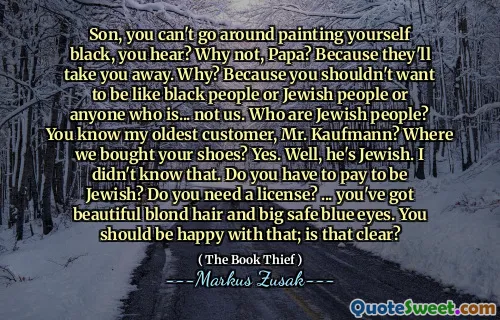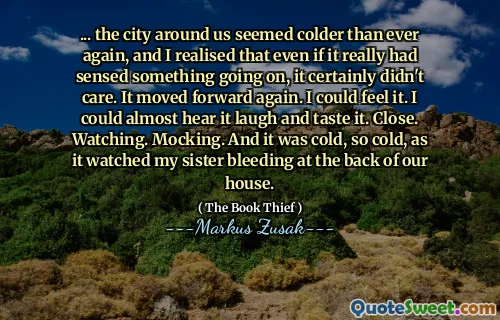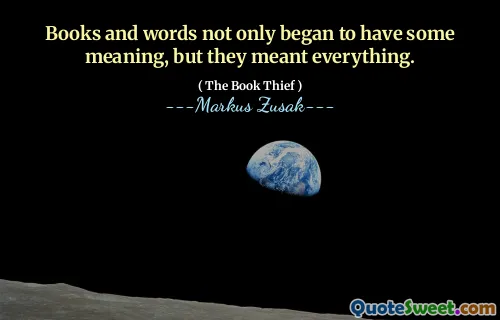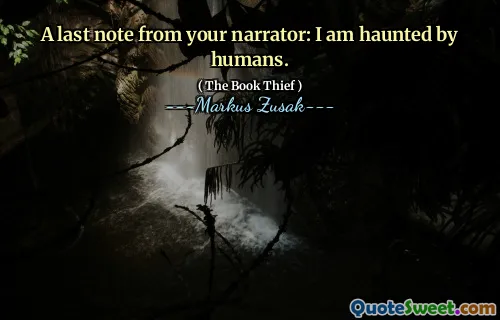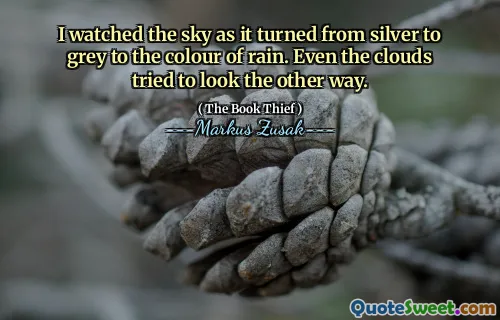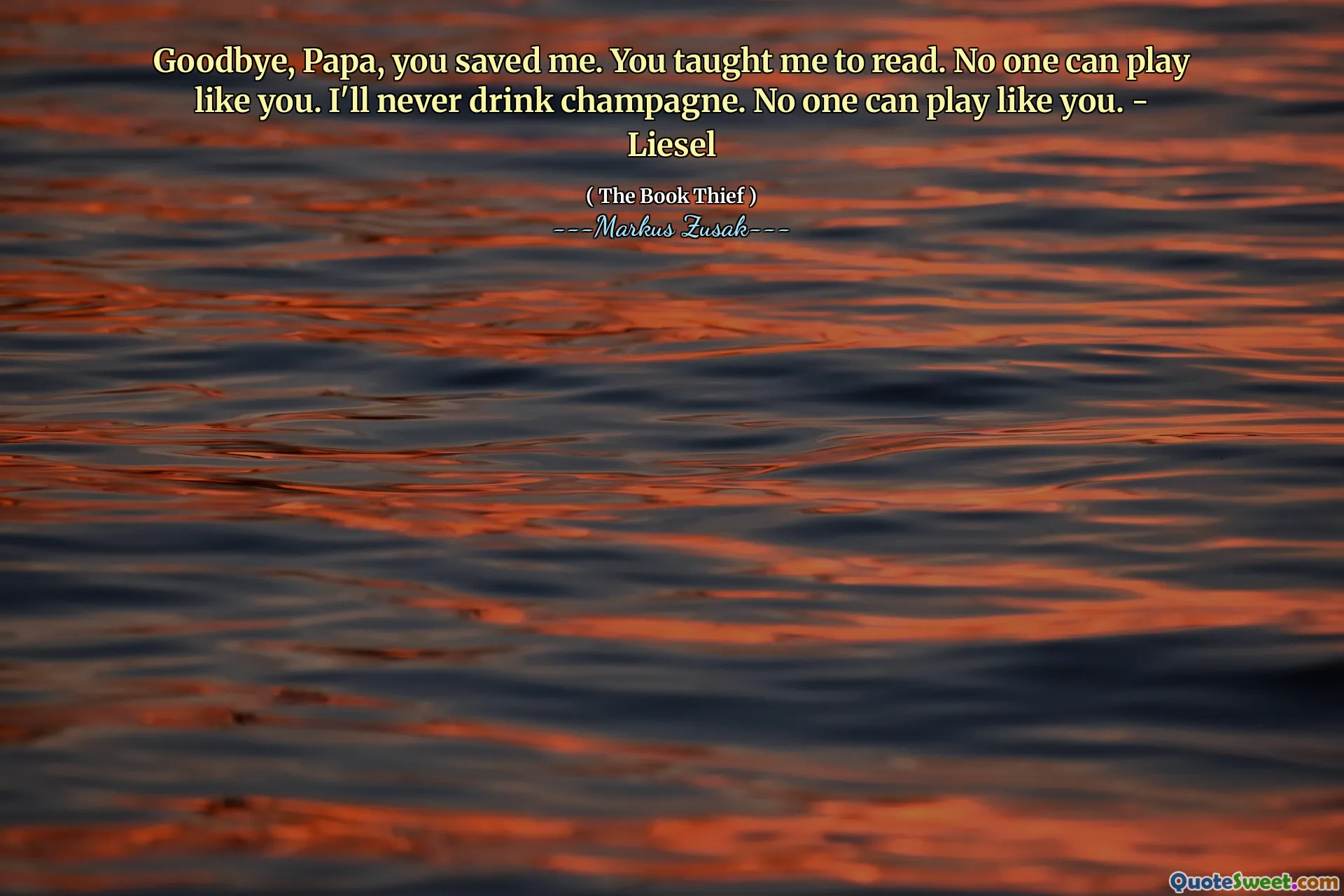
Goodbye, Papa, you saved me. You taught me to read. No one can play like you. I'll never drink champagne. No one can play like you. - Liesel
This quote from The Book Thief encapsulates a profound mixture of gratitude, admiration, and personal promise. Liesel’s farewell to her 'Papa' is deeply touching because it reflects the transformative power of love, knowledge, and individual uniqueness. The phrase "you saved me" suggests that reading was not merely an academic skill for her but a lifeline—a means of survival, comfort, and resistance in a world overshadowed by turmoil and loss. The importance of education and literacy becomes intensely personal here; it’s portrayed as salvation, emphasizing how the act of reading creates a bridge to hope and identity.
Liesel’s homage to ‘Papa’ is twofold: she praises his unique talent (“No one can play like you”), an acknowledgment of his individuality and the irreplaceable role he has played in her life. This repetition underscores the impact he has left on her, highlighting not only his skill but the emotional bond they share. The reference to never drinking champagne might symbolize a deliberate rejection of superficial or privileged pleasures, perhaps a nod to a simple life or values shaped by their experiences. It could also hint at memory or solemn respect tied to moments they shared or losses endured.
In essence, this quote resonates with the themes of survival, love, identity, and the sustaining power of human connection. It touches on how people can profoundly shape each other’s lives and how the legacies of such relationships endure through memory and actions. Liesel’s words remind us that the simplest gifts—teaching someone to read, sharing music, being there—can be life-altering, grounding us even in the harshest times. Markus Zusak beautifully captures the tenderness of loss and gratitude, making this passage a poignant testament to human resilience.

